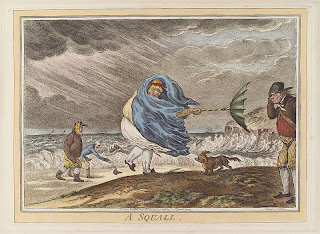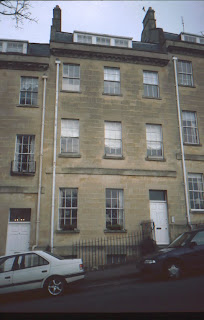Yesterday was the anniversary of the death of Admiral Lord Nelson. On October 21, 1805, Horatio Nelson, the 1st Viscount Nelson, was in command of the British Navy fleet and defeated a combined French and Spanish fleet at Trafalgar, thus securing Great Britain from invasion. The Battle of Trafalgar is considered one of Great Britain’s greatest naval victories.
While engaged in the battle, Lord Nelson was hit by a sniper’s bullet fired from the rigging of the French ship Redoutable. After being hit he said to his captain, “Hardy, I do believe they have done it at last…my backbone is shot through.” He died four hours later, his last words being, “Thank God I did my duty” and “God and my country.”
Lord Nelson was beloved by his men and revered as a great naval commander by his country. His funeral was an event with much pageantry and he was interred in St. Paul’s Cathedral. By 1809 monuments in Dublin and Montreal were constructed. Nelson’s column in Trafalgar Square was completed in 1843.
Everyone knows that Nelson’s body was preserved in brandy until transported to England, and everyone knows of his affair with Lady Hamilton. In fact on his deathbed he begged that his country take care of her and that his belongings be given to her, but these requests were ignored. She was not even allowed to attend his funeral. But did you know:
That his famous dispatch was originally requested by him to read England confides that every man will do his duty? His signalman suggested substituting the word expects for confides because expects was in the Signal book and could be represented by one flag while confides would have to be spelled out.
That before the battle, Nelson was advised to remove the decorations from his coat so he would not be so easily identified by snipers? He refused saying they were military orders and he did not fear showing them to the enemy.
That you can see Lord Nelson’s bloodstained breeches and stockings at the National Maritime Museum in London?
That you can see Lord Nelson’s famous hat at Locke and Co., hatters since 1676? Locke and Co. remains a family owned business, the oldest family business in existence as well as the oldest hat shop in the world.
Do you know any interesting facts about Admiral Lord Nelson? Did you ever see That Hamilton Woman with Vivian Leigh and Lawrence Olivier?













